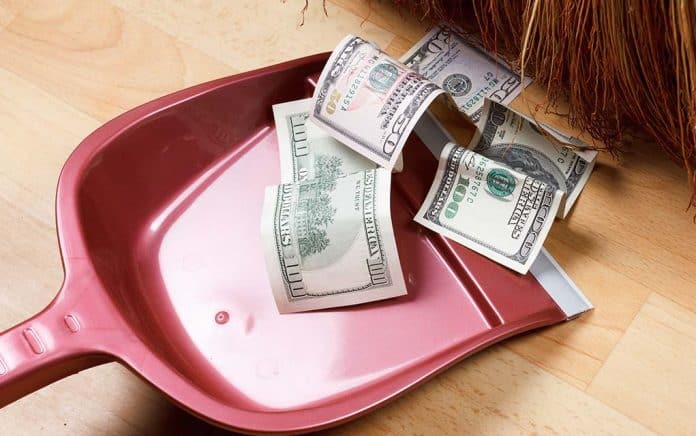
(FinancialHealth.net)- Disorganized finances could be costing you money. Whether it’s a messy system for keeping track of bill due dates or unawareness of how each paycheck is being spent, tidying up the budget is essential to staying on track.
Freshen Up Your Money Management
This is why spring cleaning isn’t just for the baseboards and ceiling fans. Now’s the perfect time to freshen up your finances, and here’s where to start.
Toss These Documents
There’s no good reason to hang on to physical copies of financial documents — thanks, technology! Eliminate excess paperwork around the house and send bank statements, bills, and retirement account statements straight to the shredder.
Hang on to the last three years of tax returns. There’s one exception to this rule — individuals who recently claimed a loss from worthless securities or bad debt deductions should hang on to tax returns for seven years.
Automate Everything
Monthly bills can be simplified by setting up automatic payments. If possible, opt for paperless statements to save trees and avoid finding yourself drowning in clutter again next spring.
Not all bills can be set up as automatic payments, however, which may be problematic for those who have a hard time keeping track of dates. If that’s you, create a calendar event and opt-in to receive an email reminder as a due date approaches.
Reevaluate Investments
Each year is another chance to plan ahead for a secure financial future. Take a close look at retirement accounts and other investments, if things stay exactly the same will you reach your goals? Individuals who are nearing retirement may need to increase contributions or opt for a more conservative approach to investments for that added sense of security as the big day approaches.
Revamp the Budget
Staying on budget isn’t easy, but it’s even harder if that budget is out of date. Beginning with fixed expenses, like rent and student loans, make sure your budget aligns with reality.
Next, compare what’s budgeted for variable expenses like groceries, gas, and eating out with what has actually been spent over the last few months. Is the old budget too low or too high? Do spending habits need to be reigned in to get back on track?
Lastly, honestly evaluate what is and isn’t working. If it was too hard to keep spending under control last year, it might be a good idea to switch to an all-cash budget. If saving simply didn’t happen, consider setting up automatic transfers for the upcoming year.
It shouldn’t take more than an afternoon to banish financial clutter and prepare for the upcoming year. These few hours could save you an invaluable amount of time and money in the future.
~ Here’s to Your Financial Success!
Copyright 2021, FinancialHealth.net


















